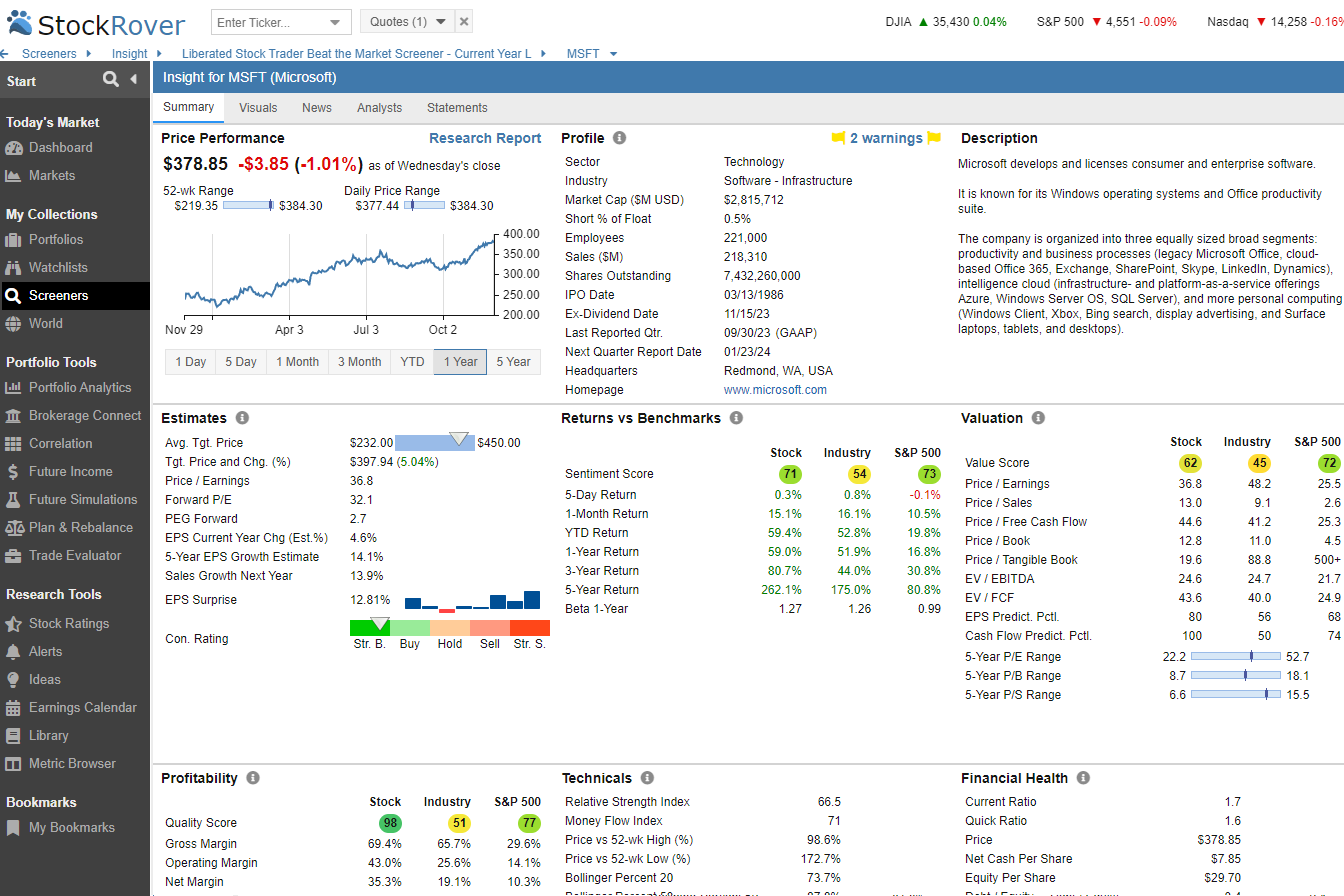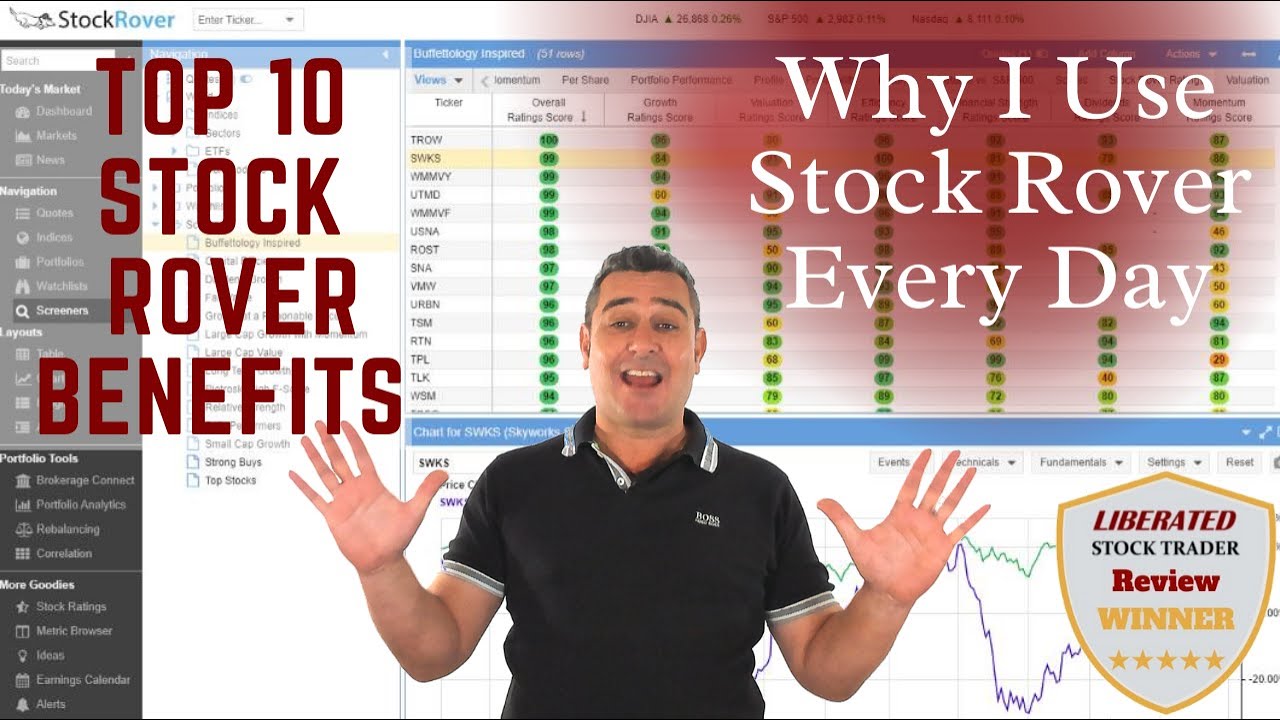Reinvested dividends are generally taxable. The tax rate usually depends on the type of dividend received and your income tax bracket. For example, qualified dividends may be taxed lower than non-qualified dividends.
Are Reinvested Dividends Taxable?
Yes, dividend payments are taxable. But depending on how you set things up, you may be taxed at a rate of capital gains of 0% or your income tax rate. You can defer that payment for many years using a dividend reinvestment plan.

What Is A Dividend Payment on Stocks
A dividend is an offer from the company, confirmed by the board of directors, to pay out a portion of its income (after-tax profits) to its shareholders. These companies tend to be well-established and have a stable income stream, enabling them to offer a constant and consistent dividend.
The dividend is mainly a reward to the shareholder for holding the stock.

Try Powerful Financial Analysis & Research with Stock Rover
Dividend Payment Types
The two main types of dividend payments are cash dividends and stock dividends.
Cash Dividend Payout – Income
These are distributions in cash (or occasionally a check) to shareholders. The amount you receive is based on the number of shares you own multiplied by the dollar amount per share declared.
Reinvested Dividend – Dividend Reinvestment Plan (DRIP)
This type of dividend involves distributing additional shares to investors instead of cash. The number of shares you receive is based on how many you already own and the percentage that’s being distributed. The stock price will also be adjusted accordingly, usually by a small amount.
Instead of receiving a quarterly dividend payment from the company, you can reinvest the dividend into a DRIP. This means that the dividend payment you would receive will be used to buy more shares in that company.
Dividend Reinvestment Plan Tax Treatment
The dividend reinvestment plan tax treatment works similarly to taxable dividends. Any income from DRIPs is considered investment income and must be reported on your taxes. It’s then subject to the same rates and deductions as any other dividend you may receive, such as capital gains or qualified dividends.
However, one key difference is that DRIPs are not subject to the dividend withholding tax. This means that any DRIP income will not be subject to taxes until you decide to sell your shares or withdraw money from the DRIP account. As with all investments, you should consult a qualified tax adviser for specific advice on your financial situation and how DRIPs might affect your taxes.
A dividend payment is an income, therefore taxable, but the rate of tax you pay on a dividend payment can be controlled by your behavior when purchasing a stock.
Ordinary Dividend
Ordinary dividends are taxed as regular income and are subject to the same rates and deductions as other types of income, like wages. You pay taxes based on your total taxable income, not just your dividend payments. If you have a high tax bracket, your taxes on ordinary dividends could be higher than those for DRIPs. Depending on where you live, this can vary from state to state and country to country.
Furthermore, capital gains or qualified dividends are also subject to taxation but at lower rates than ordinary dividends. In some cases, these lower rates can result in tax savings over ordinary dividends because they don’t get taxed at the same rate.
Qualified Dividends
Qualified dividends are paid quarterly or monthly and taxed at a lower rate. To qualify as a qualified dividend, the stock must meet certain criteria, such as being held for more than 60 days during the 121 days beginning 60 days before the ex-dividend date. In addition to these criteria, the payment must be from a U.S. company or a qualified foreign company whose shares are eligible for the lower tax rate.
Investing In Stocks Can Be Complicated, Stock Rover Makes It Easy.
Stock Rover is our #1 rated stock investing tool for:
★ Growth Investing - With industry Leading Research Reports ★
★ Value Investing - Find Value Stocks Using Warren Buffett's Strategies ★
★ Income Investing - Harvest Safe Regular Dividends from Stocks ★

"I have been researching and investing in stocks for 20 years! I now manage all my stock investments using Stock Rover." Barry D. Moore - Founder: LiberatedStockTrader.com
Qualified dividends are typically either regular cash dividends or extra dividends that “qualify” for different tax treatment in the USA. As an investor, if you hold the stock long enough and have stock in the right type of company, the lower long-term capital gains tax is applied, which is typically significantly lower. See Ordinary vs. Qualified Dividends – Lower Tax Higher Profit
Ultimately dividend payments are taxable, but depending on how you set things up, you may be taxed at a rate of Capital Gains of 0% or at your Income Tax Rate. But, using a Dividend Reinvestment Plan, you can defer that payment for many years.
How is Taxation on Cash Dividends and Reinvested Dividends Different?
The difference between the taxation of cash dividend payments and reinvested dividends is the word “Realized gains.”
Cash dividends are taxed at your marginal tax rate, typically the highest of all income sources. Reinvested dividends, on the other hand, are subject to capital gains tax rates, which can be significantly lower depending on how long you have held the investment and your annual income. In some cases, capital gains taxes can be as low as 0%,
If you receive a cash dividend payment every quarter, this is realized income. Therefore, you will be taxed on it either as a Regular or Qualified Dividend and the tax will be due shortly after the company’s Dividend Declaration Date.
If you have established your Dividend Reinvestment Plan, you will receive the payment as extra shares in your DRIP account. The shares then remain unrealized and are not taxed until the stock is sold.
If you hold the stock for many years, you will substantially delay the taxation and accrue profits on the untaxed stock, a good option for long-term investors. There are significant advantages for the company and shareholders in Dividend Reinvestment Plans.
6 Ways to Reduce Tax on Reinvested Dividends
There are six key ways to minimize the impact of taxes on reinvested dividends:
- Utilize tax-advantaged accounts such as IRAs and 401(k)s to hold dividend-paying stocks, as these accounts are generally tax-exempt.
- Place dividend-paying stocks in a taxable brokerage account that provides for qualified dividends, which may lower the effective tax rate.
- Invest in foreign dividend-paying stocks, as many countries have bilateral tax treaties with the U.S., which may offer some tax savings.
- Rebalance your portfolio periodically to reduce capital gains taxes on the sale of stocks held for a significant amount of time. This practice should not be done too often as it could trigger a higher tax rate after the first year of holding the stock.
- Consider investing in stocks with a history of increasing dividends, as this can limit taxable income while potentially providing higher returns over time.
- Utilize tax-loss harvesting strategies to offset capital gains taxes by selling securities at a loss and replacing them with similar holdings.
